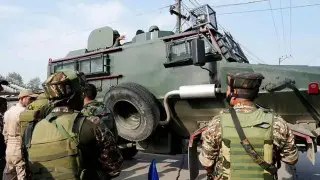
ANI
New Delhi: Chandigarh faced a surge in panic-driven fuel purchases on Tuesday, leading the administration to enact temporary restrictions on petrol and diesel sales. The ongoing truckers' strike, a response to the new hit-and-run law, prompted fears of potential fuel shortages, resulting in long queues at petrol stations across Punjab districts.
In response to the fuel crisis triggered by the truckers' strike, the Chandigarh administration announced immediate restrictions on petrol and diesel supply. Two-wheelers are now limited to a maximum of 2 litres (up to Rs 200), while four-wheelers can only purchase 5 litres (up to Rs 500) per transaction, as outlined in the official order.
The administration justified these limitations as proactive measures to ensure fair access to fuel for all amidst the temporary disruption in fuel supply. Fuel station operators are urged to comply with these regulations, and consumers are requested to cooperate with the imposed restrictions. The District Magistrate stressed that these measures are precautionary, aiming to manage the current situation until normalcy is restored. Efforts are underway to resume fuel supply to Chandigarh in collaboration with Oil Marketing Companies and authorities in Punjab and Haryana.
Widespread protests have erupted across several states in response to the stringent punishments outlined in the new hit-and-run law. The Bharatiya Nyaya Sanhita (BNS) introduces stricter penalties for drivers involved in serious road accidents who flee the scene without reporting to the police or any administrative official. Offenders under the new law could face up to 10 years of imprisonment or a fine of Rs 7 lakh. The provision was framed based on Supreme Court observations. Notably, the law differentiates between drivers who promptly inform authorities or take the victim to the nearest hospital, sparing them from prosecution under the stringent Bharatiya Nyaya Sanhita (BNS) provision.













Copyright © 2025 Top Indian News
